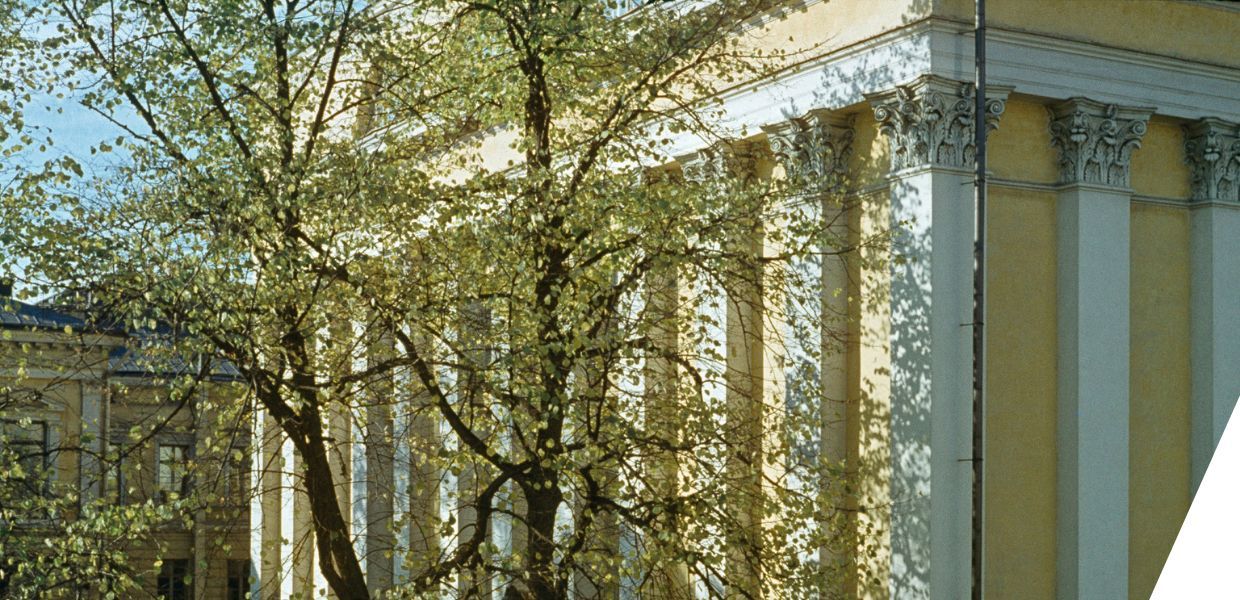As part of our work in the Environmental Sustainability Practice Task Force of the Europeana Network Association’s Climate Action Community , we were excited to learn more about the National Library of Finland’s (NFL) Sustainability Workshop series. The NFL is one of the organisations featured in the Task Force’s recently published report ‘Regenerative digital transformation: sustainable pathways for cultural heritage’, where the institution’s Sustainability Workshop series is presented not only as good-practice for adopting a cross-cutting sustainability mindset in the organisation, but an inspiring example for community engagement and representation.
Susanna Eklund, Planning Officer at the National Library of Finland, walks us through the NLF's Workshop series and how you can use the model it followed.
NLF’s workshop series
‘Rather than beginning with conventional staff training, we chose to start by creating a shared understanding of sustainability and helping every staff member find their personal connection to responsibility principles,’ Susanna explained.
Between 2022 and 2023, NLF facilitated a series of interactive workshops designed to explore ecological, social, cultural and economic sustainability in the daily work of the library, align tasks with both the UN Sustainable Development Goals (SDGs) and the library’s strategy and empower participants to take ownership of change within their units.
The workshops were well-received across departments, strengthening sustainability awareness, creating actionable proposals and prompting tangible follow-up. However, further support was crucial, as highlighted by the impact assessment following the workshop that revealed a discrepancy. While the staff motivation and sense of empowerment were positive, taking ownership and integrating measures into operational planning didn’t correlate. Therefore, more ‘conscious work and strong leadership’ was identified as being needed for supporting the goal of ‘a cross-cutting sustainability mindset’ in the organisation.
The full results of the workshops are detailed in the openly available impact report, Sustainable Development Workshops in Numbers (2023).
A model for others to use
In the spirit of knowledge sharing, the NLF also published a comprehensive guide, Workshop Model: Sustainability and Responsibility in the Daily Work of an Organization (2025). This tool aspires to support you in ‘finding a connection between staff’s daily work, the UN Agenda 2030 Sustainable Development Goals and the organisation's sustainability and responsibility goals.’
Whether you're from a library, museum, archive, or gallery, this model provides a roadmap to initiate your own process —one grounded in staff participation, concrete actions and agency.
NLF in the spotlight in our Regenerative Digital Transformation report
The new Regenerative Digital Transformation report employed the case study of NLF and their approach to developing sustainability skills across their organisation. The report highlights how:
Management support was essential for embedding change into unit-level planning;
Practical, function-oriented language helped more than jargon: for example, “optimising code” resonated more than “green coding” with technical staff;
The workshops sparked not just awareness and ideas on taking concrete actions, but honest discussions on the level of extra skills required at unit and organisational levels too,
Finally, it is important to stress that NLF’s sustainability work also extends beyond internal capacity building. Through its digital platform Finna and the ontology service Finto, the library supports multilingualism and communities’ representation.
In doing so, NLF puts its sustainability and digitisation strategies into action—supporting cultural regeneration and inclusivity while improving access to heritage for underrepresented communities.
From case study to Community Action!
At the Europeana Climate Action Community, we believe initiatives and models like NLF’s are essential for sector-wide change. We encourage you to:
Read the NLF material linked above to learn from their experience
Explore the ‘Regenerative digital transformation: sustainable pathways for cultural heritage’ report to learn more about the topic
Pilot the NLF model within your institution
Join the Europeana Climate Action Community and share your experiences
Let’s build on these examples to strengthen our community and our collective impact!



